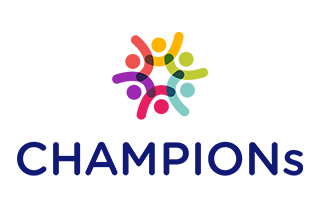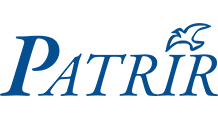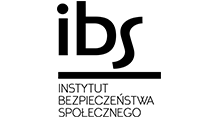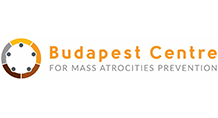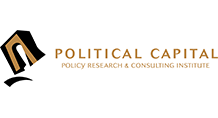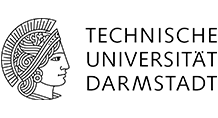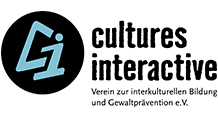THE CHAMPIONS PROJECT CONSORTIUM
Peace Action, Training and Research Institute of Romania (PATRIR)
Project Coordinator
The Peace Action, Training and Research Institute of Romania (PATRIR) has nearly two decades of experience working internationally in peacebuilding; early warning systems; strategic conflict and risk analysis; mediation and peace processes; and addressing radicalization and violent extremism. The institute works in the fields of research, policy development, training and professional development, and provides direct operational engagement in early warning, prevention and peacebuilding in areas affected by war and armed conflict. PATRIR is an initiator and member of the global partnership of organizations, think tanks, and institutes in the Beyond Violent Extremism platform gathering best practices, lessons identified, tools and methods for addressing radicalization and violent extremism. PATRIR is also a member of the Working Group on Prevention of the Global Partnership for the Prevention of Armed Conflict (GPPAC) and the Global Alliance on Armed Violence Reduction and Prevention (GAAV) – platforms which facilitate exchange and learning of best practices, tools and methodologies; development of handbooks and toolkits; and analysis of drivers, causes and factors contributing to violent extremism, terrorism, armed conflict and armed violence.
Instytut Bezpieczeństwa Społecznego – Institute of Social Safety (IBS)
Project Partner
Institute of Social Safety is a leading organization in Poland that deals with the subject of safety in society. The foundation is made up of practitioners, experts and educators from the fields of anti-terrorist education, crisis management, human rights, intercultural competences, prevention and countering radicalization in Poland.
Our educational work is focused on the development of practical skills. It’s aimed mainly at employees of schools and other educational institutions. But we also train police, workers of banks and other financial institutions, stadium stewards and representatives of local and national governmental structures.
Institute of Social Safety reducing the risk of extremist threats and crime from within communities by equipping teachers, parents, police officers and social workers, with the necessary know-how and skills to identify and reverse the radicalization process affecting youth in Poland.
Institute of Social Safety regularly cooperates with international organizations, such as the Radicalisation Awareness Network (RAN).
Foundation for the International Prevention of Genocide and Mass Atrocities (BCMAP)
Project Partner
The Foundation for the International Prevention of Genocide and Mass Atrocities including its operational body the Budapest Centre for Prevention of Mass Atrocities is a non-governmental international entity acting in the fields of conflict prevention, human rights, international and humanitarian law. It closely works together with international experts, researchers, international lawyers and diplomats. It acts globally as an impartial partner of Governments, the United Nations, regional organizations, the European Union and other international actors. It focuses on improving the international capacities and capabilities through awareness raising, risk assessments, studies and trainings.
For the last few years, it has dedicated attention to the radicalization trends in Europe. It has been implementing projects building up the capabilities of youth to resist on- and off-line hatred and bullying.
Political Capital (PolCap)
Project Partner
Political Capital is an independent, non-partisan policy research institute, committed to the basic values of liberal democracy, human rights, and market economy. Our main activities are research, awareness-raising, empowering and advocacy. One of our core topical areas is radicalisation with a special focus on right-wing extremism. We participate in the Radicalisation Awareness Network. Our activities include the followings: monitoring the activities and policies of the Hungarian far-right, conducting research on anti-Semitism and anti-Roma sentiments, analysing online hate speech in Hungary, developing alternative and counter-narratives against extremist speech, and developing educational resources to prevent radicalisation. Political Capital has also long experience in analysing both quantitative and qualitative data. One of our major products is the Demand for Right-wing Extremism (DEREX) Index that measures the openness to far-right ideology within European societies on the basis of European Social Survey data.
Technische Universität Darmstadt (TUDA)
Project Partner
The Technische Universität Darmstadt is a research university in the city of Darmstadt (Germany) where the Telecooperation Lab (TK) represents a research group of about 30 people at the Department of Computer Science. TK addresses Smart Spaces of various sizes (smart assistants and products, smart cooperative workspaces, smart cities, smart critical infrastructures, smart online communities). Prof. Dr. Max Mühlhäuser is leading this group together with several senior researchers and group leaders. The lab is deeply involved in two national cooperative research centres: one on the Future Internet (MAKI) and one on IT security (Crossing). A doctoral school (DFG Research Training Group) Privacy and Trust for Mobile Users (PAT) and conduct various research projects funded by the EU, federal and state ministries, and industry is under coordination. Research at TK is about computer interaction and telecooperation, smart networks and IoT middleware, privacy, security and trust.
SYNYO GmbH (SYNYO)
Project Partner
SYNYO is a research-based company focusing on research, innovation and technology located in Vienna, Austria. SYNYO explores, develops and implements novel methods, approaches, technologies and solutions in various domains with a particular focus on tackling societal, political, ecological and economic challenges. SYNYO analyses the impact of emerging technologies from different angles and from an interdisciplinary perspective. The team at SYNYO consists of 25 highly skilled employees specialized in various scientific and technical fields such as Social Sciences, Safety & Security, Energy & Sustainability, Urban Future, Smart Technologies, Smart Health, or Digital Systems.
SYNYO has access to a vast network of knowledge including research institutions, networking organisations, technology providers and industry leaders being well connected within the scientific community and will provide own research and innovation network platforms in the near future. In 2015 and 2016, SYNYO was among the Top 3 most successful research-oriented SMEs in Austria (H2020 Performance Monitor by FFG-the Austrian Research Promotion Agency).
Cultures Interactive e.V. (CULTURES)
Project Partner
“Cultures Interactive (CI/NGO) engages in preventive youth work around right-wing extremist/populist milieus mostly in East-Germany since 2005, later on also regarding inner-city ethnic- and group-based hatred. CI has since piloted innovative national “model-projects” around youth cultures, civic education, gender-awareness and narrative group work, in order to safeguard young people from intolerance, resentment and violent extremism – and to build capacity and resilience with municipalities and civil society.
During its numerous projects on the state, national and European level (DGs Home, Justice, Erasmus, H202 i.a.) CI emphasizes prevention in Central and Eastern Europe including Germany, currently working in all Visegrád+2 countries, e.g. through “CEE Prevent Net”, “Exit Europe” and the ENND-network. Beneficiaries are schools, youth centres, street work, prisons, community administrations and policymakers. CI also works with the OSCE, Efus, EENeT i.a. and helped in the build-up of the RAN-network. Since 2015 CI has been appointed as national network-NGO for preventing right-wing extremism, group-hatred and developing youth culture approaches within the governmental “Live Democracy!” program.
University of Applied Science Niederrhein (HN)
Project Partner
The University of Applied Sciences Niederrhein (Hochschule Niederrhein; HN), is a renowned educational and research institute in the German university landscape and one of the four largest universities of applied science in Germany. The Institute SO.CON – Institute for Research and Development in the area of Social Affairs (SO.CON) – is an in-institute of the HN, related to the Faculty of Applied Social Sciences, which plans, performs and evaluates research, development and scientific consultation projects mainly funded by German Federal and State Ministries, Communities and the ESF. Core topics are diversity, integration, participation and democracy building in communities, social institutions and companies The personal experience of the cooperation partner Beate Küpper, trained social-psychologist, Professor of Social Work in Groups and Conflict Situations and deputy director of the institute SO.CON, covers the implementation of large-scale surveys on group-focused enmity and right-wing attitudes as well as the scientific counselling and evaluation of projects in this field.
